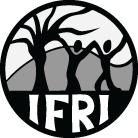FLARE 2015 Conference Themes
1. Governance and Landscapes: Empirical or theoretical work focusing on resource governance and development interventions that have an impact on lifespans, livelihoods, and conservation in and across landscapes. Potential areas of interest include empirical studies on the impacts of interventions (e.g. protected areas, certification, and community-based management, decentralization, rights and representation, landscape restoration), context specific (for instance, related to endemism) vs. more national or global scale interventions, and the development and use of key governance indicators.
2. Agricultural Commodities: Contributions should address how the expansion or intensification of agricultural commodity production relates to forest cover and distribution on the landscape. Empirical or theoretical work that examines the effect of ‘zero deforestation’ policies and how commodity agriculture affects deforestation and reforestation rates and livelihood outcomes are welcome, particularly those that employ a landscape approach to assess linkages between forests and their surrounding agricultural landscapes, and the varied trade and subsistence activities that shape them.
3. Social and Biological Aspects of Forest Dependence: Empirical or theoretical work on the social aspects of forest-based livelihoods at the individual, household, community or population level, including the role of gender in managing and benefiting from resources, household vulnerability and adaptation strategies, disease ecology and epidemiological trends, and the effectiveness of different strategies to empower forest-dependent people.
4. Impact Evaluations: This theme has a methodological focus. Contributions addressing the challenges related to 1) counterfactual analyses; 2) merging datasets with different resolutions; 3) selecting indicators to assess impacts; 4) establishing causal relationships between forests investments, other types of interventions and livelihood outcomes; 5) combining qualitative and quantitative methods; and other methodological tools are welcome.
5. Pathways to Prosperity: We invite case studies that highlight the role that forests can play in lifting people out of poverty (e.g. scaling up of small and medium forest enterprises, community-private sector partnerships). Studies at local or regional levels where forest reliance has improved people’s lives and livelihoods while conserving the natural resource base, as well as theoretical contributions, are encouraged.
* Click here for a special call for full papers on this theme!
6. Climate: Empirical or theoretical contributions that assess the linkages between climate and forests will be appropriate for this panel, and important for shaping discussions at the UNFCCC COP21 meeting. Potential areas of interest are climate and climate policies as drivers of forest change, and the importance of forests as part of emerging policy frames for carbon development, climate-smart agriculture, monitoring and prevention of deadly infectious disease, climate adaptation, or other broad approaches to human security within and beyond forests.
News
IFRI Special Issue Collaboration
(17/09/2016)
FLARE Announces Keynote Speakers

